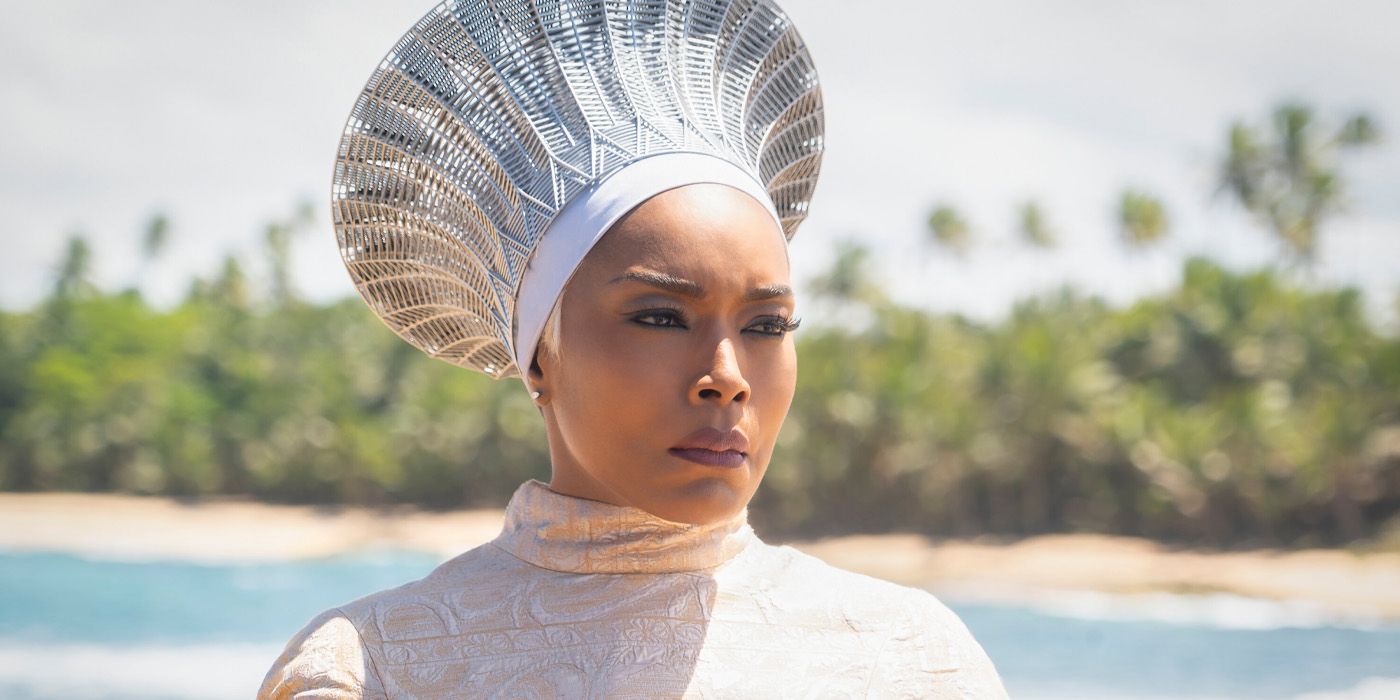Black Panther: Wakanda Forever was forced to change many things after star Chadwick Boseman’s passing, one of which gave a more maternal focus to its storyline.
Producer Nate Moore continued providing insight on the film during a recent appearance on Wakanda Forever: The Official Black Panther Podcast. There, he explained how the female-centric focus in Wakanda Forever ended up becoming the best available option for the sequel, given the tragic circumstances. "Yeah, I mean the mother-daughter angle was dictated by the reality of what we were working with when Chad passed, right?," Moore said. "It seemed natural that the two people who would be most affected by T’Challa passing would be Ramonda and Shuri." Thus, the creators of the film -- writer/director Ryan Coogler and screenwriter Joe Robert Cole -- wanted to lean into that dynamic to really tap into the emotional core of the narrative.
Wakanda Forever's Maternal Dynamic
Moore also shared how powerful performances by the female cast further strengthened the film. "And it doesn’t hurt that you have two fantastic actresses in Angela Bassett and Letitia Wright, so it’s not like, 'Oh, we can’t depend on them to deliver,'" Moore continued. "In fact, they over-delivered in the first movie, I would argue, and sort of, if not emotionally, at least from a talent perspective, were ready to carry the film." Bassett’s exceptional performance in Wakanda Forever won her the Best Supporting Actress award at the 80th Golden Globe Awards. She is one of the only actors from a Marvel film to win a major individual acting award of this nature.
The producer also discussed Wakanda Forever's aim to deliver organic storytelling. While there was a possibility of introducing additional "male heroes" to compensate for the death of Boseman, that wasn’t the goal for the team of the film. "Really it’s about trying to tell the best story," Moore explained, which is why Wakanda Forever chose to depict the experiences of its female characters and focus on their journey. Yet, the mother-daughter aspect happens to echo the father-son dynamic the team originally had in mind for Boseman in the sequel after the reveal of T'Challa's son, Toussaint. "It was absolutely nothing like what we made," Coogler recently said. "It was going to be a father-son story from the perspective of a father because the first movie had been a father-son story from the perspective of the sons."
Black Panther: Wakanda Forever is a direct sequel to Black Panther (2018) -- by way of the events of Avengers: Infinity War (2018) and Avengers: Endgame (2019) -- and deals with the consequences of the untimely (art imitating life) passing of King T'Challa (Chadwick Boseman). Starring Letitia Wright and Angela Bassett, alongside Lupita Nyong'o, Danai Gurira, Winston Duke, Florence Kasumba, Dominique Thorne, Michaela Coel, the film released to widespread critical and commercial success. It ended up being the sixth-highest grossing film of 2022.
While Marvel Studios hasn’t officially announced a third film, Wright seemingly confirmed that Black Panther 3 is in development. "I think it's already in the works," she said in an earlier interview. "You know, we just had a terrific two years of just bringing it out and everybody coming together to support it. We need a little bit of a break, we need to regroup, and [director] Ryan [Coogler] needs to get back into the lab, so it's going to take a while, but really excited for you guys to see that."
Black Panther: Wakanda Forever is set to stream on Disney+ starting Feb. 1.
Source: Wakanda Forever: The Official Black Panther Podcast via The Direct

